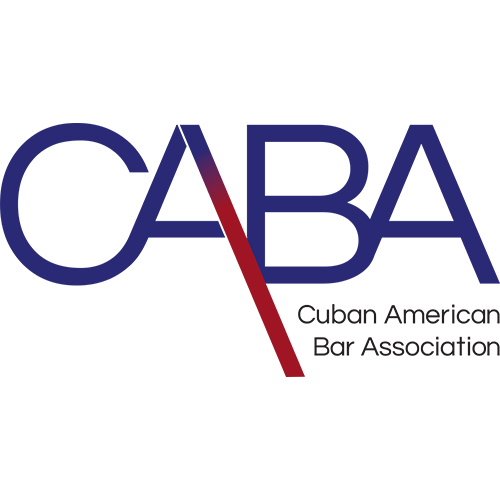What Is a Contingency Fee?
When you hire a Miami personal injury attorney, you probably don’t expect them to work for free. Unless a Miami accident attorney is generous enough to provide pro bono work, they’ll charge for their services.
reviewed for Accuracy
The content on this page has been produced and reviewed in accordance with our editorial guidelines. This content has been reviewed and approved by founding Personal Injury Attorney Jack G. Bernstein who has over 40 years of legal practice experience.
There are several methods lawyers use when charging Miami legal fees. One of the most common is the contingency fee structure.
The Basics of Contingency Fees
When you hire a Miami law firm, one of the first questions you should ask is how much their services will cost. If you hire a criminal defense attorney, they’ll likely quote you a flat fee or charge by the hour. Typically, lawyers charge based on the amount of work they expect to do.
However, Miami accident attorneys rarely charge flat fees or by the hour. That’s because many clients would refuse their services if charged this way.
When a lawyer charges a flat fee or hourly rate, they usually request a retainer before they get to work on a case. But most personal injury victims don’t have the money to pay upfront. Contingency fees solve this problem.
When a lawyer charges a contingency fee, they agree to accept a variable fee based on the amount of money they obtain for their client — the more they win, the more they receive in turn. This fee is ordinarily paid at the culmination of the case when the client gets their share.
Types of Cases That Involve a Contingency Fee Agreement
If you’re seeking Miami legal representation for a personal injury case, the odds are good that the lawyer you hire will charge a contingency fee. Personal injury cases are ideal for contingency fee agreements, as claimants often receive awards at the end of their cases that can, for the most part, be easily calculated at the outset of the case.
You should expect a contingency fee if you’re making any of the following types of claims:
- Car Accident
- Wrongful Death
- Slip and Fall
- Medical Malpractice
It’s difficult to determine in advance how much work your Miami personal injury lawyer will have to do, but with a free consultation, your lawyer will have a better idea of what your case might involve.
Some cases might involve minimal investigation and can, therefore, be resolved through simple negotiations with an insurance company. Others could require weeks or even years in court. With such a wide range of possibilities, a flat fee is almost impossible, and an hourly wage could result in sticker shock.
Upfront Costs Associated With a Contingency Fee Arrangement
The big selling point of almost all contingency fee agreements is that there are no immediate costs.
Some lawyers may create hybrid agreements that charge a lower-than-normal contingency percentage in return for an upfront fee, but such a billing scheme is unusual. Most of the time, individuals looking to take legal action with the aid of a lawyer who works on contingency won’t pay a dime until the conclusion of their case.
How a Contingency Fee Lawyer in Miami Calculates Their Fee
Calculating a contingency fee is relatively simple. The attorney waits until the case is fully resolved (either via settlement or jury verdict) and then claims a predetermined percentage of the client’s total award. On average, most Miami lawyers charge around 33% of the final settlement value.
However, every contingency fee contract has different details. Some attorneys charge for expenses but deduct the costs of those expenses from the final settlement before tabbing out the fee. Others add the cost of any expenses after the contingency fee has been charged.
You should discuss how your prospective representation will calculate their fees before making a decision. If you don’t like their proposed fee structure, look elsewhere to find a lawyer who can handle your personal injury case in Miami.
What Happens if a Case Isn’t Successful Under a Contingency Fee Agreement?
Because personal injury lawyers can choose whether to take a case, most only accept cases in which they’re confident they can win. But what do you do if you have a bad personal injury attorney who fails to get you the money you were expecting?
The good news is that, according to most contingency fee contracts, you won’t have to pay them an attorney’s fee. However, this doesn’t necessarily mean that you’ll be completely off the hook, financially speaking.
Many attorneys who charge contingency fees will still require you to pay for court costs and other expenses, even if they fail to obtain compensation for you. They should explain this possibility in detail in the contract you sign.
Possible Additional Costs
The contingency fee effectively pays the attorney for the legal labor they perform. But who pays for the other costs associated with making a personal injury claim? Usually, the client is on the hook for those costs.
The following are some additional costs that may apply in cases involving a contingency fee agreement:
Court Fees
Every court in the country charges fees for certain activities. For example, you’d pay $405 to file a civil case in the U.S. District Court in the Southern District of Florida. Your attorney will likely front those fees, and you’ll repay them at the end of the case.
Expert Witness Fees
Expert witness testimony can be a major advantage in certain types of lawsuits. However, there are many restrictions on when expert witnesses are permissible and what types can be employed.
Due in part to these restrictions, expert witnesses often charge steep fees. As with your court fees, your attorney will usually cover the cost with the expectation of being repaid at the case’s conclusion.
Determining Whether a Contingency Fee Is the Right Option for Your Case
There are many reasons to have a personal injury attorney. Most clients seek money to help them with medical bills, lost wages, and other expenses resulting from a personal injury. However, others may be more interested in forcing change than winning compensation.
If you’re one of the rare claimants who cares more about justice than compensation, a contingency fee may not be the right option for you.
Few lawyers will agree to accept a case that doesn’t have good prospects, even if it contributes to a noble cause. However, the right attorney may agree to a flat fee in this situation. It will allow them to support your cause without having to lose money on the legal services they provide.
Advantages of a Contingency Fee Arrangement
Besides not having to pay any fees upfront, there’s one other significant advantage to a contingency fee arrangement: with the possible exception of auxiliary expenses, you only pay your attorney if they successfully obtain compensation for you.
At the same time, a contingency fee arrangement encourages your lawyer to secure as large an award for you as possible.
No matter how much work they put into your case, they’ll only get a percentage of the money they obtain for you. Thus, if they can get you a higher settlement by doing their best work, they’ll also get paid more in the end.
Contingency Fee Regulations in Miami, FL
While the Florida government doesn’t regulate contingency fees, the Florida Bar does. According to the Florida Bar, if a lawyer charges a contingency fee, all details of that fee must be placed in writing, and all parties involved must sign a contract before the lawyer performs any services.
Furthermore, some fee structures are automatically presumed to be excessive, even if all parties agree to them. Typically, any contingency fee higher than 33.3% on the first $1 million is considered excessive if the case settles before it’s filed with the courts. Once filed, any fee above 40% is considered excessive.
Fees higher than 30% are considered excessive for the next $1 million, and fees higher than 20% are considered excessive for any amount after that.
Slightly different rules apply to medical malpractice claims. In these cases, claimants are entitled to at least 70% of the first $250,000 (not including associated costs) and at least 90% of any remaining compensation.





